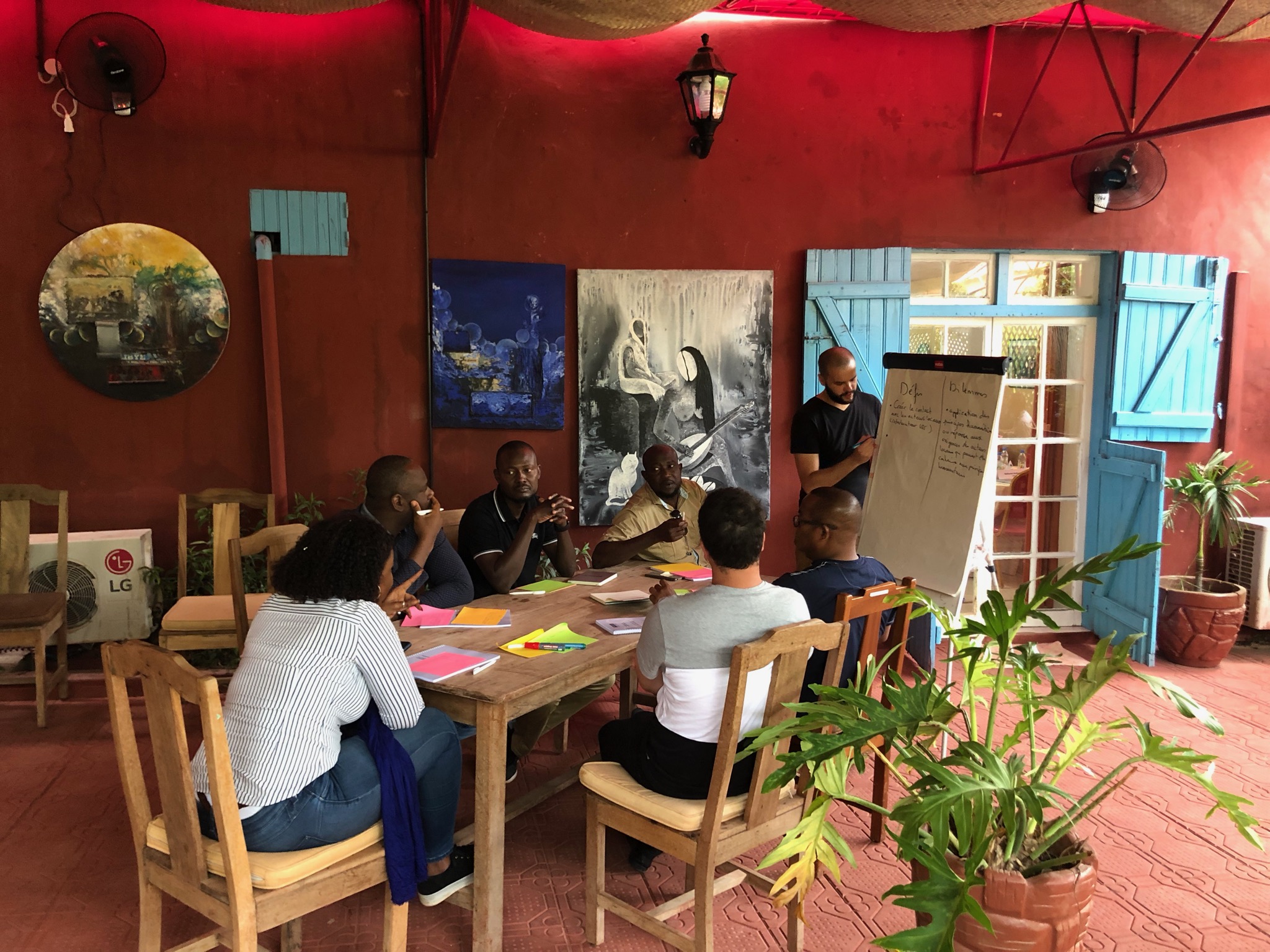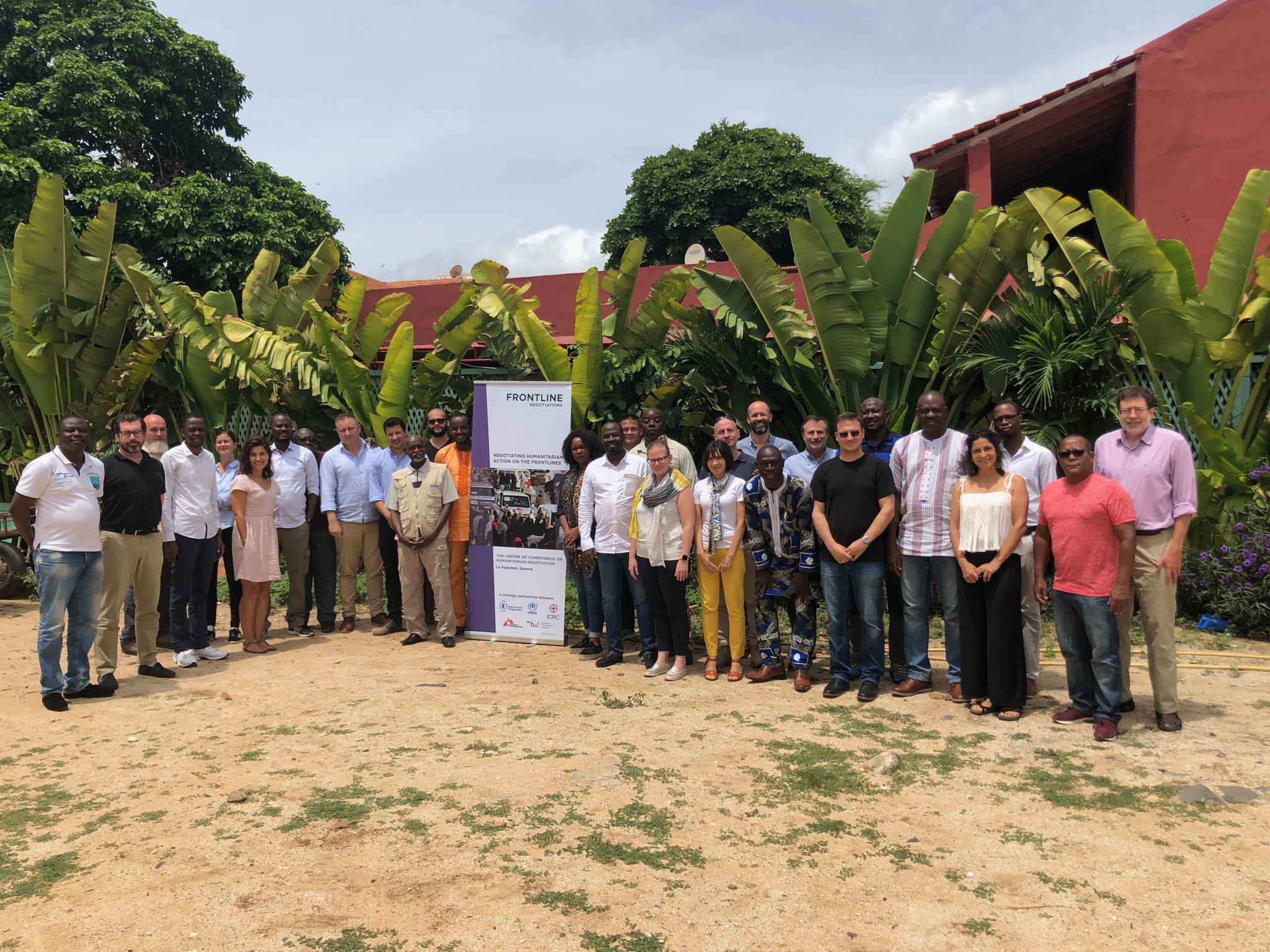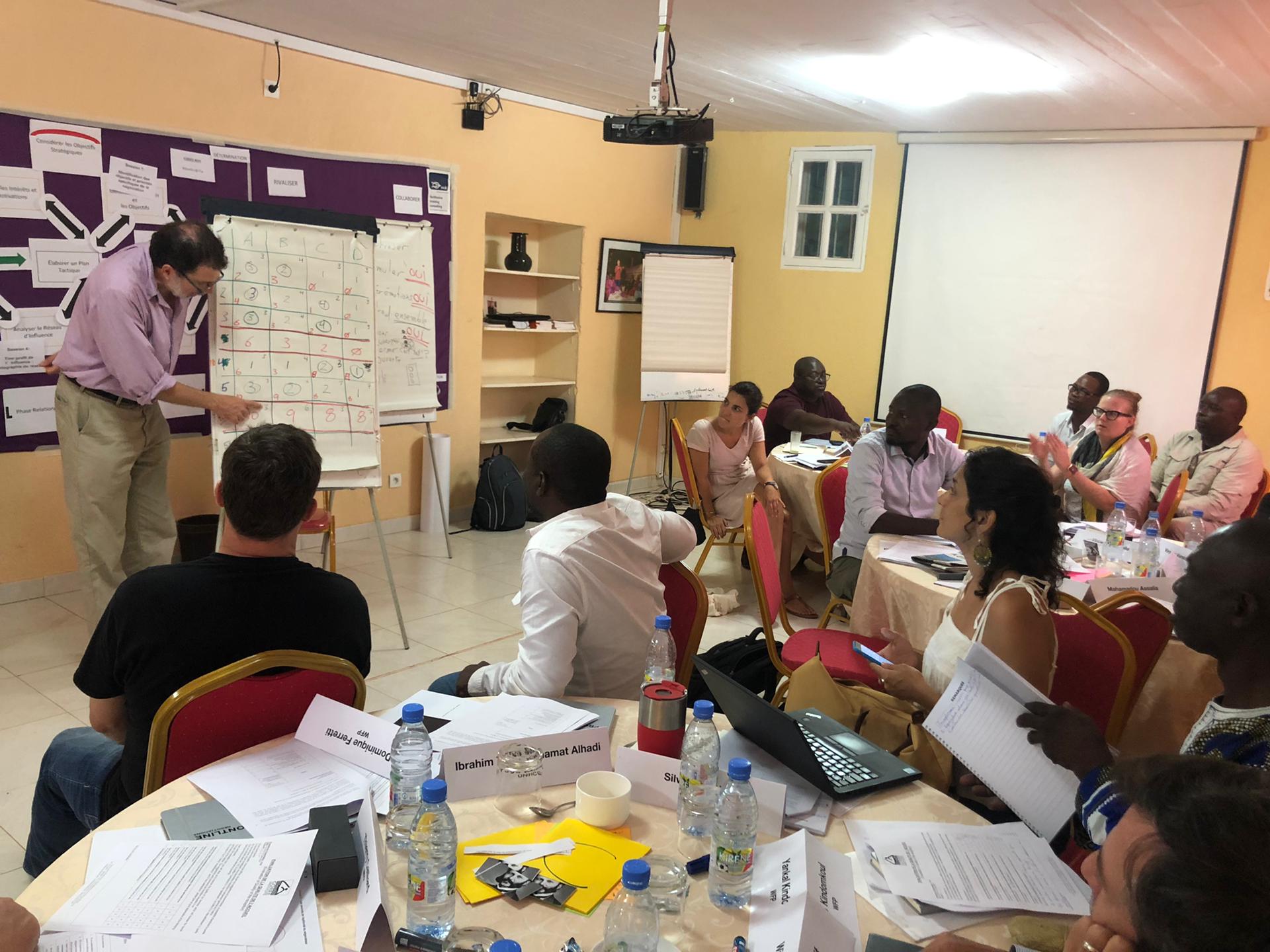
An engaging peer exchange during the workshop in Dakar. (Photo Credit: Nikolas Rubiato/CCHN)
As part of its objectives for 2019, the CCHN seeks to build negotiation capacity of humanitarian organizations operating in West Africa. Against this background, it hosted a Peer Workshop from 26-28 August 2019 in Dakar, Senegal.
“It was important for the CCHN to provide a regional workshop in West Africa, focused on those operating in the Sahel countries”, said Will Harper, CCHN Negotiation Support Specialist responsible for programs and activities in Africa. The event was organized in collaboration with the regional offices of the Strategic Partners in Senegal.
The workshop was held in French. The majority of participants were frontline staff and operational managers from the World Food Programme (WFP), the International Commitee of the Red Cross (ICRC), the UN Refugee Agency (UNHCR), Doctor Without Borders (MSF), Mercy Corps, Save the Children.
“The content [of the workshop] is in line with what is really happening on the ground”, said René Colgo, who currently serves as MSF Head of Mission in Mali. “Experience sharing is always enriching.”
“I found this workshop interesting because it allowed us to understand how to oscillate between the respect for the humanitarian values of organizations and the necessity to respond to humanitarian needs in order to save lives,” added Doboko Telegna. Telegna works as a Protection Field Officer for the ICRC in Cameroon.

Group photo with all participants and facilitators. (Photo Credit: Nikolas Rubiato/CCHN)
A practical toolkit for frontline negotiators
In conversations with the facilitation team, participants expressed how important it was to learn about the different types of humanitarian negotiations and how to adapt to each of them.
“Sometimes we stick to normative approaches, spend time defending ourselves on the basis of humanitarian principles without carefully listening to the questions of the counterpart and adapting our answers,” said Moussa Dicko. Dicko currently serves as a Protection Field Officer for the ICRC in Burkina Faso.
During one of the sessions, participants discussed the design of red lines in the planning phase of negotiations. As part of this conversation, they identified the respective roles and responsibilities of headquarters and field offices.
“It is an important phase because it allows the field and headquarters to agree on important points such as the red lines [in a negotiation],” Colgo said. “The negotiator does not go solo!”

Together with the peer workshop participants, CCHN Director Claude Bruderlein highlighted challenges and dilemmas of humanitarian organizations in conflict environments. (Photo Credit: Nikolas Rubiato/CCHN)
Operational challenges to discuss in the future
The facilitation team was also keen to collect suggestions from participants about what operational challenges the CCHN should tackle next.
One participant suggested looking more into the dilemmas and engagement with armed groups at the operational level. Additionally, there was a particular interest in analysing negotiations with highly fragmented armed groups in the Sahel and Lake Chad regions.
Another participant suggested discussing more how to regain humanitarian access to a zone in which serious mistakes had been made and red lines crossed in the past.
The CCHN will take these suggestions into consideration when planning its next steps in the region.
